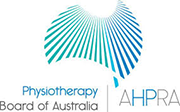
This past weekend a friend and I went to the local park run and yes were one of the “first-timers”
It was great being part of such a large group of 200+ like-minded people, cheering each other. It had a sense of community, belonging, and fun. We were all coming from different walks of life but shared the common goal of pursuing fitness and wellbeing. I spoke to one woman who said he had been doing this for over 20 years! Absolutely amazing!
However, this prompted me to think of a different kind of group, women who may be suffering in silence or not able to take part in running due to pelvic floor dysfunction (incontinence, pelvic pain or prolapse) Most commonly reported with running is stress incontinence. This is loss of urine due to an increase in the abdomen that pushes down on the bladder. In running this is due to the impact of the body through the feet on the ground that causes an increase in abdominal pressure. This pressure acts on the bladder and if the pelvic floor muscles are weak results in leakage. This usually happens when running hard, running downhill, and sprinting.
Just like pain, bladder leakage must be treated with the due care it deserves. It is not NORMAL, and in fact, its presence is one of the ways the body tells you that something is not quite right or not working as it should. Its reported about 30% of women suffer from incontinence, these are only the reported cases. With any dysfunction, if left untreated it has the potential to only get worse. More so with running due to the force pressures involved acting on the pelvic floor muscles.
Stress incontinence is more common in women due to the effect of pregnancy and childbirth but can also be present in those without children. Chronic constipation, chronic coughing, and obesity are other risk factors.
If you are running and are experiencing the above here are a few tips to consider:
Pelvic floor muscle awareness – Have you got a sense of what your pelvic floor muscles are doing? Are you able to tighten and lift them as well as relax and let go? It is important to be able to carry out the two movements for effective muscle function and hence strength training. Being able to have a consistent training program in place for your pelvic floor muscles is a good way to get effective results. (see article on essentials of pelvic floor workout).
Breathwork – Breathing well is an important role of working the inner core/muscles. Ensuring the diaphragm (breathing muscle) is moving and doing its job allows good coordination and connection with your pelvic floor muscle. These two-work hand in hand for optimum core strength and stability.
Do not dehydrate yourself- common misconception less in less out. This is far from the case during physical activity.
Check your speed -Be mindful of how you are increasing your intensity. Stride length and pace rate can also impact your pelvic floor movement (that is faster pace results in an increase in abdominal pressure).
Check your form – As we run faster our body alignment can often break down as the body adopts compensatory movements to make up for any weakness and imbalance.
Last but not least a few self-assessment questions to ask yourself:
- How is my footwear?
- How is my posture?
- What is my running track like – surface type, flat or uphill/downhill?
At Inner Active Physiotherapy, we have a team of women’s/ pelvic health physiotherapists that specializes in pelvic dysfunction who can help you with the above. They can screen your musculoskeletal system and carry out a full assessment of your pelvic floor muscles. They would be able to provide you with the information and steps you need to resolve this. Information is empowering!
If you are considering starting or getting back to running after birth, surgery or injury please see your women’s health physiotherapist. At Inner Active Pelvic Physiotherapy we take a patient-centered approach and create an individualized treatment program designed to address your specific concerns and help you to get back to doing what you love.
Get the help you deserve!
Tafy Seade





